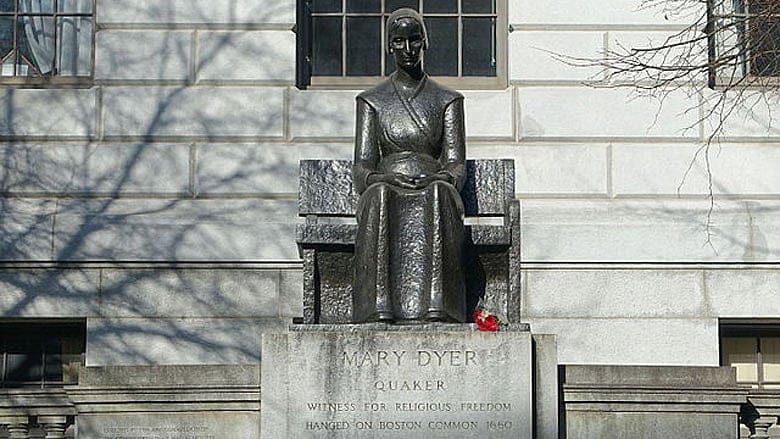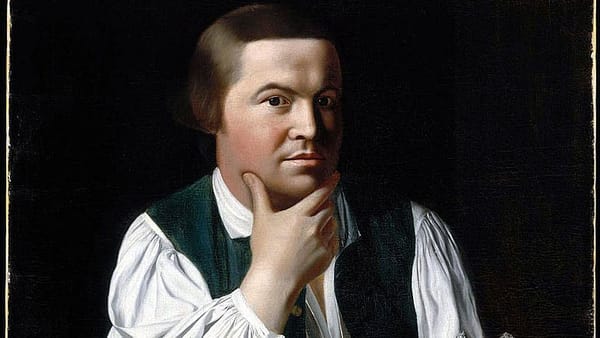No. 10: A Boston execution paved the way for the First Amendment

Mary Dyer was executed in Boston in 1660. Dyer was a Quaker spiritual leader who became a martyr. She refused to obey anti-Quaker laws, most famously the October 1658 statute that banned Quakers from the Massachusetts Bay Colony or face death. Dyer and several other Quakers chose to make a stand for religious freedom in Boston. Her defiance led to her public hanging, but the execution prompted the writers of the Rhode Island Constitution to declare that church and state would be separate, a precursor to the First Amendment of the U.S. Constitution, which prevents the government from making laws inhibiting the freedom of religion.

